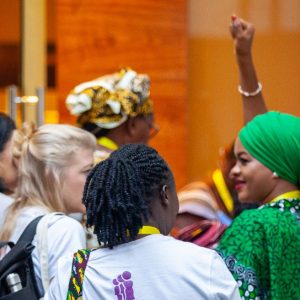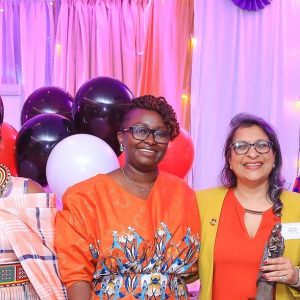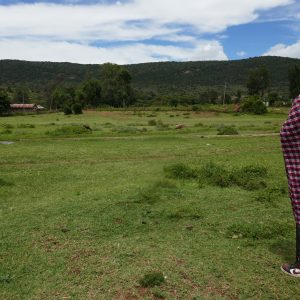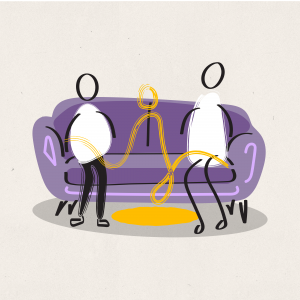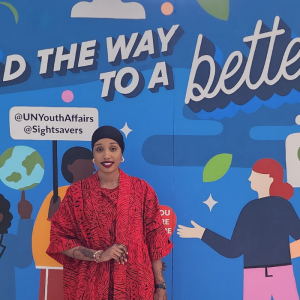Since January this year, we have been working with ECAW (Education Center for the Advancement of Women) and Feed the Minds to support the abandonment of FGC in Kenya. Through ECAW’s strong community networks this project protects and empowers young girls and women, at the same time as challenging the communities’ attitudes towards the practice. You can find out more about the project by clicking here. Our Knowledge and Programmes Co-ordinator Lucy has been out to visit…
Last week I visited our partner ECAW, the Education Centre for the Advancement of Women, in Kuria, Kenya.
ECAW have been working in the area on women’s rights since the early 90’s and have partnered with Feed The Minds (FTM) for the last 6 years. This year, ECAW, FTM and Orchid Project formed a joint partnership to work toward the abandonment of FGC in Kuria.
FGC prevalence is very high in Kuria, with a Baseline Study carried out recently by ECAW finding that in a sample of 900 women, 80% were cut in Kuria West and 83% in Kuria East. Research carried out in 2011 by FTM found that FGC is still a celebrated public event among the Kuria. Girls undergoing the cut are given gifts and are generally considered more suitable for marriage and more socially acceptable. Uncut girls and women frequently experience stigmatism, isolation and ridicule and this tends to be far greater for uneducated girls than for those who are educated.
Day 1
After arriving at the ECAW offices and a catch up on all the activities that had taken place in July, I was able to see ECAW in action leading a community forum in Maeta, Kegonga in Kuria West. Maeta is a rural district where electricity is rare and communications channels few and far between. The forum began with introductions and a recap on the last session by a local paralegal – women and men engaged by ECAW to bring about discussion on FGC within their own communities. Twenty participants rapidly increased to 100 as the session went on, comprising of religious leaders, health professionals and community members.
FGC is acknowledged to be a problem in the area; ECAW have been working on the issue for many years as have some other NGOs and the law is widely understood. Within the Maeta forum, community members showed that they are on the path of change – people talking openly to one another starts to break the taboo. FGC was acknowledged to be unnecessary, with one Mama asking why their community is cutting their girls whilst their men are marrying uncut girls from other communities. However, understanding of human rights, why FGC happens and how it may end are not widespread. For FGC abandonment, the whole community needs to be engaged to shift the social norm – the decision to abandon must be a collective one in order to enable everyone to stop cutting together without incurring social sanctions such as stigmatisation.
One issue that came out of the forum is that a large cost is incurred to a family when a girl who is not cut then plans to go to secondary school and continue her education. ECAW are training chiefs to assist parents in obtaining and completing forms for secondary school bursary applications.
One strategy that came out of the forum was the (later named) Parent Unity Model. Dialogue between community members revealed that blame between mothers and fathers is common; women feel that men want the cut to go ahead because they enjoy the ceremony and see it as important within marriage whilst men feel that women want girls cut for social acceptance. One suggestion was for parents to talk to one another to understand each other’s reasoning for and against the practice. ECAW plan to develop and take forward this suggestion, to parent and other stakeholder meetings.


